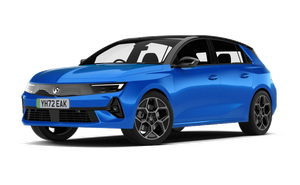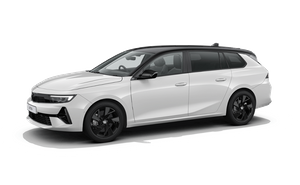Introduction and model history
The original Porsche Cayenne helped launch the whole idea of a performance SUV when it arrived back in 2002.
The concept of a tall, heavy five-seat SUV that was also fun to drive sounded ridiculous, but the first Cayenne’s on-road ability confounded doubters and brought a massive wave of new customers to the brand. It’s been among Porsche’s best-sellers ever since and the third-generation car was its most popular model in 2023, despite the imminent arrival of a new version.
That new version is now here and while it’s a midlife update rather than completely new car, it does bring some significant changes including major powertrain tweaks and a whole new interior hiding behind a titivated exterior.
Range, battery and charging
One of the most important changes to the Cayenne comes in the shape of its E-Hybrid model, which has been given a bigger battery and more powerful electric motor to give even quicker performance and improved electric-only range.
As before, there are three plug-in versions of the Cayenne - the regular E-Hybrid, which we’ve driven, plus the Cayenne S E-Hybrid and the silly Cayenne Turbo E-Hybrid. All of them get a brand new 25.9kWh battery, up from 17.9kWh in the older model. Porsche says that should be good for up to 55 miles of purely electric motoring in the standard E-Hybrid, dropping to 48 miles in the S and 45 in the Turbo. That’s a significant improvement on the previous model’s mid-20s range but still behind alternatives like the BMW X5 or Range Rover Sport.
Charging has also been upgraded with the addition of an 11kW AC on-board charger, which cuts charging time to just under two and a half hours, despite the larger capacity of the new battery.
The Cayenne E-Hybrid has multiple drive modes to shift between a focus on range and performance, all controlled by a beautifully tactile rotary switch on the steering wheel. The modes range from E-Power, which keeps the petrol motor out of the equation right up to 87mph, to Sport+, which throws everything into the mix for maximum performance, while also tweaking the chassis and steering. For most regular driving, you’ll want the standard hybrid mode which works out the best blend of petrol and electric. There are also separate save and recharge options to ensure you keep the electric charge for where it’s most useful.
Practicality and boot space
The Cayenne was Porsche’s first five-door model and the first to put a focus on practicality alongside performance.
At 4.9m by 2.1m, it’s a big car, with loads of space inside its beautifully finished cabin. Smaller passengers might find it a bit of a step up to get in but once they’re there there’s acres of space to stretch out. Front seat passengers are particularly well served but those in the back don’t have much to complain about. Even at 6’ 5”, I fitted behind an average-height driver comfortably. The only disappointment is that a large transmission hump renders the middle seat awkward for anything but short journeys.
Predictably, the PHEV battery does eat into boot space but the regular SUV still offers an impressive 627 litres behind its powered tailgate, with a user-friendly wide opening and flat load floor.
Cayenne Coupe versions lose a little in headroom and boot space. The former will only bother passengers north of six feet tall, but the latter is a matter of almost 200 litres, which is pretty significant.
Notably, the Cayenne has the best towing capacity for any PHEV in its class and is capable of pulling a 3,500kg trailer - 500kg more than a Range Rover Sport.
Interior, design and technology
Externally, this midlife update for the Cayenne has brought some minor nipping and tucking. There’s a new front end with more pronounced wings and a new bonnet, along with new-look Matrix LED headlights. At the back, the tail lights have a 3D pattern effect and a new apron tidies up the rear lines.
The E-Hybrid has also ditched the lurid green badges and brake callipers of the previous plug-in in favour of subtler chrome badging on the wings and plain old silver brakes.
Changes inside are more significant, with a completely new dashboard and centre console. At the heart of the new setup is a 12.6-inch digital instrument display that sits low down in front of the driver without a chunky cowl filling the view ahead. Alongside this is a 12.3-inch touchscreen where a number of secondary controls have been moved to tidy up the previously cluttered centre console. Thankfully, climate functions are still controlled by physical switches in the console, but the drive selector has been moved up to a small toggle on the dashboard - like the Taycan.
For the first time, buyers can specify a third digital screen - a 10.3-inch unit integrated into the dashboard directly in front of the passenger. This largely mirrors the functions and appearance of the main screen but also allows them to stream video if they’re feeling anti-social.
While it looks different, the quality of the new Cayenne continues where the old model left off, with impeccable material and built quality that goes some way to explaining the steep asking price.
Motors, performance and handling
Along with the new interior and bigger battery, the last key change to the Cayenne E-Hybrid is the uprated motor.
The previous car’s 100KW electric unit has been replaced with a 130kW one, while the twin-turbo V6 remains. Total power in the standard E-Hybrid has increased from 456bhp to 464bhp, while the S E-Hybrid has climbed to 521bhp and the Turbo E-Hybrid offers 729bhp - making it the most powerful Cayenne ever.
We’re sure that range-topping car is hilarious but the entry-level plug-in is no slouch either. In Sport+ mode, it will sprint to 62mph in 4.9 seconds and bash on to 158mph if you can find a suitable stretch of autobahn.
In either of the sport settings, a heavy prod of the throttle brings instant response from the e-motor, backed up by a rapid surge in shove from the growling V6 up front. Even on wet British roads, the four-wheel-drive system does a fantastic job of translating the power into rapid, secure forward motion and this 2.5-tonne five-seater feels every bit the performance machine. Hybrid modes dull the throttle a little but this is still a family SUV that can show a fair few sports cars a clean pair of heels.
And the joy of the Cayenne is that it doesn’t all fall apart in the corners. The first-gen cars impressed with their on-road composure and handling and things have only got better. All versions of the E-Hybrid come with Porsche’s active suspension system and our test car was fitted with the optional adaptive air suspension and rear-wheel steering. In combination they allow the Cayenne to behave in a way that shouldn’t be possible.
Corners are dispatched with a composure and flatness completely at odds with the car’s height and weight. There’s none of the lean or heave associated with large SUVs, yet there’s very little compromise in the ride. With the suspension in Sport+ there’s a sharper edge but you can dial this back to comfort to smooth out most bad surfaces without losing the car’s neat handling. And the rear-wheel-steering (a £1,325 option) tucks the back end of the car in with remarkable speed and precision.
Allied with a level of steering feel and feedback that’s missing from most modern cars, and the Cayenne E-Hybrid marks itself some distance apart from alternatives like the Range Rover Sport PHEV.
Running Costs & Pricing
The Cayenne has never been a cheap car and even the most affordable E-Hybrid comes in at just 200 quid shy of £80,000.
What’s more, Porsche isn’t exactly generous with the spec for that money. We can understand paying extra for features like the rear-wheel-steering and a panoramic sunroof but standard cars don’t even get adjustable lumbar support or adaptive cruise control - things we take for granted in cars costing half the Porsche’s price.
Go wild on the options list and you can easily take a standard E-Hybrid to well over £100k.
In terms of running costs, the fuel efficiency figures, of course, don’t tell the whole story and your fuel bills will depend massively on how you drive the Cayenne and how often you charge it. The good news is that the improved range has brought the Cayenne’s company car tax down, with business drivers now paying 8% BiK instead of 15%.
Verdict
The Cayenne E-Hybrid is expensive but brilliant. It drives astonishingly well for a car its size, with a level of engagement that’s hard to find these days. The 55 miles of EV range isn’t the best in class but it’s still a useful everyday amount and the smoothness and refinement is a joy. Add in a spacious, beautifully finished interior and you’ve got a brilliant plug-in option.




























